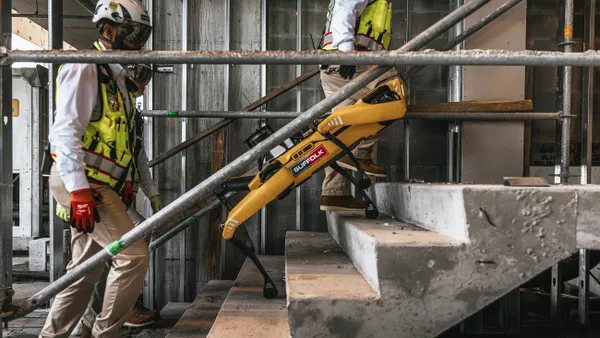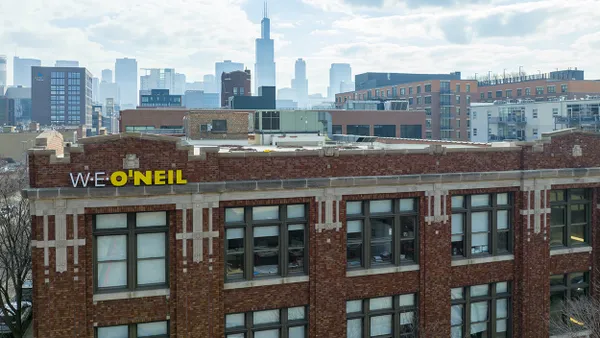Dive Brief:
- The U.S. Department of Labor (DOL) filed suit against a Boston-based contractor, alleging that the company took retaliatory measures against one of its employees — facilitating his U.S. Immigration and Customs Enforcement (ICE) arrest — after he reported a workplace injury, an event that kicked off an OSHA investigation.
- According to the lawsuit, José Martin Paz Flores (Paz) was working as a drywall taper for Tara Construction when he fell from a ladder and broke his leg. Based on Paz's report to a foreman and a referral from the local fire department that day, OSHA began an investigation into safety conditions at the jobsite.
- The DOL alleges that Tara CEO Pedro Pirez subsequently contacted law enforcement with concerns about Paz’s identity and facilitated Paz’s arrest outside of Tara’s offices, which resulted in his detention by ICE for days.
Dive Insight:
The DOL is seeking back pay and damages from Tara on behalf of Paz, as well as other relief such as a neutral letter of recommendation for Paz, who has since been cleared to work, to present to prospective future employers. Reporting an injury and causing an OSHA investigation to be initiated are protected acts under federal whistleblower laws, which blanket all workers, regardless of immigration status.
These protections, such as regulations prohibiting employer retaliation, are important because fear of adverse action can prevent employees from reporting illegal and/or unsafe activities. In Paz’s case, the retaliation came in the form of an arrest, but employers could also lash out at workers who report malfeasance of some sort through employment termination, demotion, denial of overtime or promotions, intimidation, harassment and reduction of pay or hours.
Another recent case of whistleblowing drew attention to a contractor's cover-up of faulty work.
After an employee of Universal Concrete Products in Pennsylvania falsified test records to make it appear as though the defective concrete panels the company provided for the $5.8 billion Silver Line rail extension in Washington, D.C., met project specifications, it was a whistleblower complaint filed under the False Claims Act that helped the U.S. Department of Justice pursue its case against both the company and former employee.
The DOJ ended up settling claims of wrongdoing with Universal Concrete Products and company executives for $1 million. The DOJ and Commonwealth of Virginia were also able to secure a judgment against the former employee, who pleaded guilty to falsifying results, for more than $700,000.
State and local agencies can also provide whistleblower protection in some cases. For example, New York City Council Member Ben Kallos proposed a prevailing wage law that, if approved, would require construction workers to be paid a minimum rate on any project subsidized by the city and protect whisteblowers who flag noncompliance.













